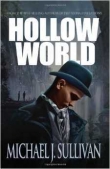
Текст книги "If I Fall, If I Die"
Автор книги: Michael Christie
сообщить о нарушении
Текущая страница: 13 (всего у книги 20 страниц)
Traversing the locks seemed to take a day, though of course he couldn’t be certain, and Vadim didn’t appear. Titus rationed the water, allowing himself a teaspoon from the jar for every five hundred breaths he took, and before long his water was down to the amount of beer a man would abandon in his glass without thinking a thing of it.
Luckily, before the nightmares returned, the hatch popped. Night again, starless this time, and the lights on the deck cut sharp angles into the hold. Vadim was sober and seemed hurried, gruffer, as though embarrassed by the camaraderie they’d shared last time. “I’ve come to tell you we pass Montreal in two days,” he said whispering quickly. “You can get off there. This is the last port call before ocean. Okay?”
Titus said okay. Somewhere in the dark hours alone, he’d lost his conviction to drown. But Montreal seemed as good a place as any to die.
“We are not docking in Montreal, but I know a tugboat man who hauls there. He brings supplies. Booze and other things. He will return you into the harbor.”
Titus thanked him. Vadim looked like he was preparing to go. “Any chance of some more water?” Titus said. “Or even something to eat? These oats are twisting me up.”
Vadim sighed. He put his hands over his face. “You know it is not easy for me to get this water,” he said sharply. “It does not look good carrying jars about. It looks like I am loafing. Or with moonshines.”
Titus told him he could tie it to a string and dip it in the lake. “I’m not picky,” he said.
“This is not the point,” said Vadim wearily, shaking his head. The wheedle of gulls could be heard in the air above the hatch, and for a moment Titus thought he would like to climb out, throttle this silly man, then go swimming.
“Okay,” Vadim said after some consideration, “toss up this jar.”
Vadim caught it and put it under his arm like a football.
“This tugboat, in Montreal,” Vadim said before he shut the hatch, “this is not free. He is my friend, but he must make a living.”
When Titus started digging for his wallet, Vadim shook his head. “There is a man,” Vadim said, shifting his weight and checking over both shoulders. “He is from the center of America somewhere, Ecuador, Panama—who knows. He has a name, but this is not matter to you. It’s a poison on the tongue. He is causing many problems for me. For your friend Vadim. He is a vile man. A nastiness. Like in Bill Shakespeare, or a novel by Charlie Dickens—yes! A man like Sikes.”
Titus nodded. He couldn’t keep his eyes from the empty jar under Vadim’s forearm.
“Well, this man has been stealing from me, Titus. He tells me I owe him money when I do not. He tells me we have made bets that no crew has witnessed. At night he comes to me when I sleep. He whispers that he will cut my a killings tendons. You know these?” Vadim made a slashing motion over the back of his leg.
Again, Titus nodded.
“So this is this thing I need helping with. You see I am small man. I am watchman. I watch. But you are not, Titus. You are a man who does not only watch. Who has seen much bloodshed. I tell this by your face. You have scars. You are a hardness. So, I’m hoping for this. Help this man fall from the boat. That is it. Like Bill Sikes. Give him what is his own. It would save me from so much …” His gaze fixed on the edge of the hatch as he trailed off.
Titus took a breath. “I’m sorry, Vadim,” he said. “You’ve been real helpful. And I appreciate it. But I don’t think—”
“No,” Vadim barked and grabbed the hatch. “I knew this. This is okay. This is my problem. You have your problem and I have mine. These are separations.” He said he would return with the water, then closed the hatch. Later Titus woke to find two jars of water had been tossed down into the hold while he slept. They were murky with green bits spinning in them like tiny meteors.
Maybe it was the sight of his best friend’s blood dripping from the handcart he’d used to transport him or the limited oxygen or some mysterious fumes, but the texture of Titus’s mind had altered. There in the dark hold he watched time pour time down the drain indifferently, lying for hours, unchafed by boredom or unwanted visions. He played chess with old friends and directed theater productions entirely in his head. He remembered whole texts he’d read as a child, enough to recite them backwards. His time in the hold had nearly turned pleasant—empty spaces like a stack of newspapers printed blank, nothing but dates at the top of every page.
He ate oats soaked in one of the jars and reserved the other for drinking. Soon from the scuffing sounds he knew the ship was again in a series of locks. Then for a period anchored. With the engines quiet he heard more voices above, some footfalls, then nothing. In the dead quiet he listened to the rustle and snap of himself blinking.
Then the engines roared again. The ship sounded its foghorn. The boat rocked. After a while he detected a briny scent skulking into the hold. After another day he heard a tapping at the hull. All kinds of clean notes like a glockenspiel: ice, he soon realized. The water in both jars was gone when Vadim came again.
“I’m sorry, Titus,” said Vadim sorrowfully. He was drunk again, his face rosy with blood.
“We’re the sea’s music now, aren’t we, Vadim?”
“This is what I’ve been trying to tell you,” he sobbed. “But you don’t making sense when you speak. It looks like you are taking vacations after all.”
“What about Montreal?” Titus said, elevating his voice, less concerned with his own well-being than a man’s adherence to his word.
“I have job here, you know,” said Vadim. “I had to paint winches. Grease chains. Low work, you must think, Titus, beneath you. But it must be done. And my tugboating friend did not come. It is not all easy for Vadim. He does not get to slumber all day in a soft bed.”
Titus clenched his teeth and once again considered piling up a mound of oats so he could climb out and throttle the man, though now the hatch was even higher. Perhaps Titus was eating his way down.
“But there is another problem,” Vadim said sheepishly. “This man I told you about. The Panamanian. Titus, I told this man about you when I have been drinking. A mistake. I am a talking friend, Titus, my weakness. And now he is going to Visser about you. He said this with his mouth. About how you have stolen your passage and have been eating the cargo. This is not good. He is also a rapist, this man. He boasted to me last night, as though I would applaud?”
“Okay,” said Titus, “get to it.”
“If you don’t deal with him soon, I don’t know if I can come again. Too dangerous for me.”
Titus understood now his position. That he’d rid himself of his desire to die and attained something near peace in the dark hold meant nothing. He would not go unpunished for everything he’d left broken behind him. It seemed fitting now that the price for no longer yearning to cast himself overboard would be to further degrade himself, but he’d already constructed the armored vault in which to put all the vile things he had left to do in his life, and its dragging weight meant there would be no more good days for him, no more comfort or kindness.
“When?” Titus said.
“He is on watch tonight, before me,” said Vadim, his eyes on fire. “I will fetch you when the time is clear.”
Later, a knock came and the hatch opened, and rain fluttered in as Titus heard the slap of feet retreating on the wet deck. Titus had hoarded a large pile of oats that allowed him to grasp the lip of the hatch with two hands and hike himself up.
On the deck, he drew the sweetness of sea air into his body. No stars, only a tin roof of cloud and waves crashing like shunting trains. He removed his work boots and set them beside the hatch, which he closed but did not fasten. He crept in bare feet along the railing in the dark toward the bow of the ship, as rain swept in fizzy sails overhead. He spotted the man: short, but sturdy looking, copper skin like an Indian, smoking, sparing the tiny ember from the spray with a small cave made with his hand. He stood exactly where Titus had weeks before, the morning of the accident, when he nearly plunged himself into Thunder Bay’s harbor, which he’d now left so far behind.
With the sweet air in his lungs and his head clearing, Titus came to the knowledge he could do this man no harm. He’d picked up some Spanish while gambling with sailors laid up in Thunder Bay and was sure he could piece together enough words to inform the Panamanian of Vadim’s plot. Then Titus would throw himself at the mercy of this Visser. Titus had been beaten plenty in his life, and the thought of it didn’t quicken his pulse in the slightest. At worst he’d be thrown overboard.
The Panamanian couldn’t hear Titus when he called, so Titus touched him kindly on the shoulder. The man spun and his eyes cracked open and popped with panic and he started yelling in a guttural tongue that Titus had no acquaintance with. The words came faster the more he spoke, the way an avalanche gathers speed. He was something closer to black, light-skinned, but black. Tranquillo, Titus repeated a few times, until the man clenched his fist over his cigarette with a hiss and swung. Titus half-ducked and took it hard on the ear. They grappled. Perhaps it was his time in the hold, or the lack of oxygen, or his oat diet, but Titus did not find the strength he’d expected. They scuffled for some duration, each trying to upend the other, slipping wildly on the slick deck. When exhaustion took them, they spent some time in a clinch. Each instance the man made to cry out, Titus squeezed his chest and killed his breath. Titus tried every word in every language he knew of to reach him, even making some up, as the man breathed in his ear like a dog, but none of it registered inside him. After a period of rest, the man commenced thrashing in earnest and wailing his fists. Blows landed on Titus’s chin and face and neck. The man was strong and pinned Titus to the rail. Titus grabbed the seat of his rubber pants and desperately hoisted upward. Upended, the man clutched at the air and caught hold of the railing with a leg and an arm on his way over. Clinging there, he started calling in his inscrutable language toward the rear of the ship where the wheelhouse was. People’s names, sounded like, and Titus wondered momentarily if they corresponded to his parents, or friends, or crewmates. Panicked, blood and voices howling in him, Titus struck once at the man’s bulging throat and it yielded and instantly he lost all wherewithal to breathe. He choked like he’d swallowed a box of fishhooks, dangling there, before strength abandoned him and he dropped into the dark roar.
The next day Vadim came to the hatch with a grin. He lowered down a bucket on some twine. In it was cabbage, fried beef, potatoes, aromatic as anything ever put before him. “You have saved me, my friend,” Vadim said.
Titus sat looking at the bucket but did not touch it.
“But I must tell you. Visser is not happy about the losing crewman. He said he was sure-footed. Seasoned. And that he does not believe in falling accidents. So, Titus, they are searching the ship. And it won’t be long before they see the holds.”
“I’ll entomb myself here,” Titus said. Sculpting an old word in the air with his tongue comforted him.
“Don’t be stupid. There is weeks of your shit down here. They’ll find your traces.”
Titus looked beside him. Blood from his nose and face from when the Panamanian had struck him had left clumps in the oats like cat litter. “I knew this would transpire,” he said, unable to believe Vadim couldn’t tell he was already dead.
“Come, Titus. I’ve found you a new place.”
A great weariness came over each of his muscles. “I need to wash,” Titus said with a sudden distaste for his hands, the blood that had been on them.
“No, no, no—” Vadim began.
“Either that or I ring Visser,” Titus interrupted.
Grumbling, Vadim led him to the lockers at the base of the wheelhouse. Titus stripped, set the shower as hot as it would go and kept his head down, water hammering his neck as he hissed every word he’d ever known into the steam. He put his clothes at his feet, letting his own steps and the runoff clean them. He shaved with a razor he found hanging from a screw in the scummy tile. After, he wrung his clothes over the drain and pulled them on wet before returning to the hatch. He lay down, the oats coating him like batter.
Back in the dark, finally clean, Titus turned his soothed mind toward the walks he used to take with her to find the blue and yellow prairie wildflowers that grew all along the tracks that snaked their way east to the elevator. Sown by seeds that the threshers inadvertently swept up along with the grain, the flowers were found all the way down the line in high summer. The thought of this set him weeping.
Vadim returned that evening and helped Titus climb up onto the deck. He threw a line and looped it over a lifeboat hanging from some rigging high above. “They’ve already searched these, so they should be safe. And here,” Vadim said, handing Titus a laundry sack filled with oats and three jars of clear water. “I found some more vessels,” he said quickly.
Titus took the line and shimmied up to the boat. He snapped away the vinyl cover and crawled beneath it. The bench seats of the boat made it so there was nowhere to lie flat, and the wind rattled the craft as though it was airborne. He shivered when night came, piling the oats in the driest corner and wrapping himself in the laundry bag, missing the muffled gloom of the hold, the warmth of his nest like the afterglow of a lover.
The next day, he discreetly opened the part of the cover that faced outward and bathed various parts of his body in a triangle of sunlight. He tossed a few oats to the seabirds that followed in the ship’s wind, listening to their gorgeous shrieks, until a crowd began to form around his hiding place and that was the end of that.
It was the following day that Titus sighted the green shoulder of land. He tried releasing the lifeboat, but the mechanism was padlocked. Hurriedly, he drank all the water and sealed air in the jars as tight as he could manage and tied them up with his money and boots in the laundry bag. He drew back the vinyl cover and jumped as far out from the ship as he could manage to clear the engines. He bobbed for hours in the high waves, clutching the jars, which weren’t enough to buoy him completely but lessened his labors.
When he emerged from the seawater onto a mucky rise he was met by black men on rafts preparing some cylindrical traps. After he’d finished vomiting from exhaustion, one of the men prodded his chest with a fishing rod, probably to see if he was a ghost. But Titus could find no handhold in the sounds they made, could make no order of their faces. He walked inland from the dock and followed a baking dirt road for hours until he reached a disorienting city. There he found a bank. He handed them the money from his wallet and the smiling woman handed back colorful bills in a wad so enormous he had to distribute them among the pockets of his trousers.
He bought half of a barbecued goat and some yellowish fruit chunks in a plastic bag and brought it to a public sitting area. As he ate, garbage burned in a wire incinerator nearby, and the smell pleased him. He rented a room in a squalid hotel he felt he deserved and walked for hours each day, finding the Panamanian’s face in the crowds, as well as his best friend’s, speaking out loud to himself, happy at the incomprehensive looks he received in return. After a week of wandering, he asked for directions to a port where he contracted on a ship carrying chemicals out of Liberia.
After that he signed with other boats. Years passed at sea, quick as a shudder. Aughinish. Hamburg. Latvia. Antwerp. Murmansk. Vancouver. Shanghai. Rotterdam. New Orleans. Nagoya. Amsterdam. Hay Point. After all his time on the water, both stowed away and now as crew, he attuned himself to loneliness, to the captivity of oceangoing, to a life spent between ports. Visions rarely troubled him. Though he still disliked the talking required with the other crew, minimal as it was, and frequently retreated to his cabin to read and whisper into his pillow.
But over the years, his whispering became harder to contain, and he managed to offend a Polish first officer and was let go. Sitting beside an American in a beachfront drinking establishment in Shanghai, just a long table under a bale of thatch, he overheard the man say he’d signed a contract on a bulker to the Great Lakes. Titus followed him to the wharf and signed his name.
He rode again through the locks, this time climbing them like a long staircase. But he learned from a crewmate that Thunder Bay got very little grain traffic these days. So he hopped off and caught freights back and forth across Canada, east and west, each time sailing through Thunder Bay, unable to locate the courage to jump off. In his new life he could pass days like a blink and months in an afternoon. He found he preferred rail travel to shipping. On trains he met every manner of low creature, tucked away in all the nooks and crannies that railcars accidentally provide. A man who injected grain alcohol into his veins with a hypodermic needle, who could attain pure, shambling drunkenness with a capful of cheap vodka. Another man who snorted brown powder from a baby food jar and slept twenty hours of twenty-four. People missing half their heads, half their hearts; people who’d stabbed their families, and who’d been stabbed—by their families and otherwise; people who’d been raped and had raped, not necessarily in that order. There existed a crude system of exchange between American and Canadian currency, cigarettes and jugs, the rates for which were maintained collectively in their heads. They passed around the ugliest money he ever laid eyes upon. Bills soaked in blood, urine, semen—animal and human. Money begged for, killed for, hidden and squandered and stolen a thousand times over. He never raised a finger toward any of them, because none was worth helping or hurting, and he received the same indifference in return.
Then one day while catching out of Steinbeck, Manitoba, he climbed onto a gondola car loaded with big packets of lumber that already sheltered a bedraggled man. “Room for two, fella,” the man said, and Titus tucked himself into the space beside him. Titus nodded but didn’t speak. Since he’d been riding trains, the whispering had worsened, and his words were further jumbling in his head, as though someone had taken a sledgehammer to the card catalogues in the library of his mind.
But after a day of watching the prairie rip past from their nook on the highballing train, the man zeroed in closer with a finger in Titus’s face. “I recognize you. The elevators. We worked an unloading crew,” the man said. “I heard you was dead.”
“Things … change,” Titus managed to get out right.
“Sorry I can’t rightly place your name there, fella,” the man said squinting. “But welcome home besides.” Luckily, by the empty closets of his eyes and the way decades of cloudy brandy and sleepless transience had carved from him all glimmers of vitality, Titus could tell this was a man accustomed to ghosts.
After that Titus hopped off in the yard near Pool 6 and considered going to her straightaway, but first he wanted a look at the elevator. He needed to take it slow, as though he were coming up from the deep ocean. Finding the elevator abandoned, he slept overnight there, and despite the sickening sight of the water out front that had swallowed his best friend, he found comfort in its smells: train diesel and the linger of grain dust. From high in the workhouse he’d look up to Thunder Bay and scarcely recognized it after all those years. But it was good to be near where she was. Better even.
Then one morning he shaved and washed up and regarded himself in a rearview mirror he’d pulled from an abandoned truck. With his skin tanned and eyes clear, he looked like something not quite dead, something almost worth forgiveness, even for the worst things, especially by someone as good as she was. He followed the creek up to her house and found it dark. Part of him was proud of her for leaving. He returned each Sunday night for years, watching, until one day the lights were on, and he saw her, twirling a little boy around, dancing together in the lamplight among the furniture, and it was then he realized a wall had been built between him and the world of houses. Between him and the world of calendars and dancing and dinners steaming on tables and children drinking glasses of milk with two hands. He could not track his mess into their house. Into these bright, buoyant lives. He belonged to a different world now. Outside hers.








